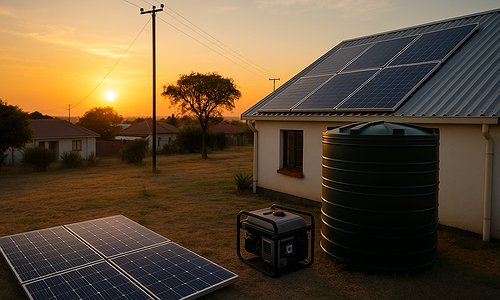Profitable business ideas in SA for 2025
FinTech and the digital banking revolution
South Africa’s FinTech sector is experiencing rapid expansion fuelled by the increasing adoption of digital financial services. The demand for mobile banking, digital wallets, and peer-to-peer lending platforms continues to rise as traditional banking institutions struggle to meet the needs of the unbanked and underbanked population. The success of companies such as Yoco and TymeBank demonstrates the potential for innovative financial solutions tailored to South African consumers.
Opportunities exist for entrepreneurs to develop platforms that improve financial inclusion and facilitate cross-border payments, or integrate blockchain technology into secure and transparent transactions. Regulatory changes by the South African Reserve Bank, which are paving the way for open banking, also present prospects for start-ups to create API-driven financial solutions. With mobile penetration at an all-time high, there is huge potential for digital-first financial services to reshape the industry.
Agribusiness for smart farming and food security
Agribusiness remains one of the most lucrative sectors in South Africa, driven by both local consumption and export potential. The rising demand for sustainable and precision farming techniques has opened doors for entrepreneurs interested in agritech solutions. Drought-resistant crops, vertical farming, and hydroponic systems are gaining traction, particularly as climate change continues to impact traditional farming methods. One of the key growth areas is the production of organic and specialty crops for both domestic and international markets. South African wines, macadamia nuts, and citrus fruits have seen a surge in demand globally, providing opportunities for entrepreneurs to invest in value-added agricultural products. Moreover, advancements in agri-processing and food tech, such as plant-based proteins and alternative meat products, are aligning with global consumer trends, making this a highly profitable space for innovation.
Renewable energy and the future of sustainable power
With South Africa facing persistent energy challenges, renewable energy has emerged as a high-growth industry. The government’s push for independent power producers and the continued instability of Eskom create opportunities for entrepreneurs to establish businesses in solar, wind, and bioenergy solutions. The declining cost of solar panels and battery storage technology has made renewable energy projects more accessible for businesses and households. Entrepreneurs can tap into the market by providing off-grid solar solutions, solar water heating, and battery storage systems designed for residential and commercial use.
The rise of electric vehicles (EVs) and government incentives for green energy solutions also suggest potential in charging infrastructure and energy-efficient innovations. A particularly promising area is waste-to-energy initiatives, where organic waste is converted into biogas or biofuels. With municipalities seeking sustainable waste management solutions, businesses that can offer viable alternatives to landfill disposal while generating renewable energy stand to benefit significantly.
E-Commerce and the rise of digital retail
The South African e-commerce market has seen exponential growth in recent years, with the COVID-19 pandemic accelerating the shift to online shopping. Despite the return to in-store retail experiences, consumer preferences for convenience and digital transactions remain strong. Opportunities in the e-commerce sector are diverse, ranging from niche product offerings to innovative logistics solutions. Local brands focusing on sustainable fashion, health and wellness products, and homegrown tech accessories have gained traction among South African consumers. Furthermore, dropshipping and direct-to-consumer models allow new businesses to scale quickly without major upfront investment in inventory.
One of the biggest challenges facing e-commerce in South Africa is logistics, particularly in rural areas where delivery networks remain underdeveloped. Entrepreneurs who can solve last-mile delivery challenges to optimize fulfilment processes, and integrate AI-driven customer service tools, will be well-positioned to succeed in the competitive digital retail landscape.
Final Thoughts
The business landscape in South Africa for 2025 presents fascinating opportunities for entrepreneurs willing to capitalize on emerging trends. Each of these sectors offers profitable ventures for those who can innovate and adapt to changing consumer demands and regulatory frameworks. As the country continues to contend with its economic challenges, entrepreneurial ventures in these high-growth industries will not only generate major profits but also contribute to sustainable development and job creation.




